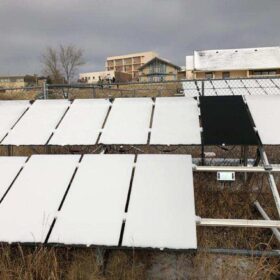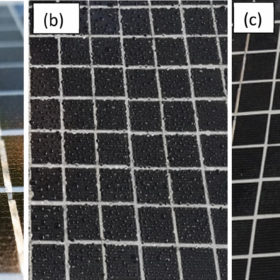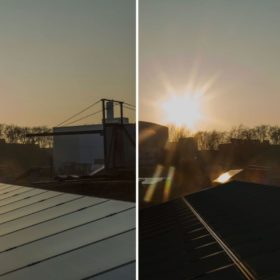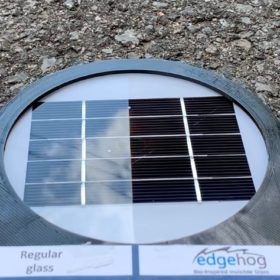All antireflective solar module coating techs at a glance
Scientists in the United Kingdom have investigated the durability and performance of all antireflecting coatings for solar modules and said further work is needed to improve industry standards. Their review addresses single-layer and multi-layer techniques and provides insight on their costs and viability.
Titanium wires-based anti-soiling coating to improve solar module yield
Researchers in Thailand have developed an anti-reflective and anti-soiling coating for commercial solar modules that is claimed to increase power yield by over 6%. The coating has photocatalytic properties that make the organic compounds adsorbed on the solar module surface decompose, thus preparing them to be easily washed off by rainwater.
German start-up develops anti-reflective film claimed to improve PV module performance by 10%
German start-up Phytonics has developed the film by taking inspiration from nanostructures in plants. In solar cells, the film enables a broader absorption spectrum and a higher angle of light-incidence tolerance.
Canadian start-up secures US$2.5 million to launch omnidirectional anti-reflective glass
Edgehog secured the funds from Sustainable Development Technology Canada (SDTC). The special glass is hydrophobic and is claimed to be able to reduce the accumulation of dust and residue, thus reducing the need for maintenance.




